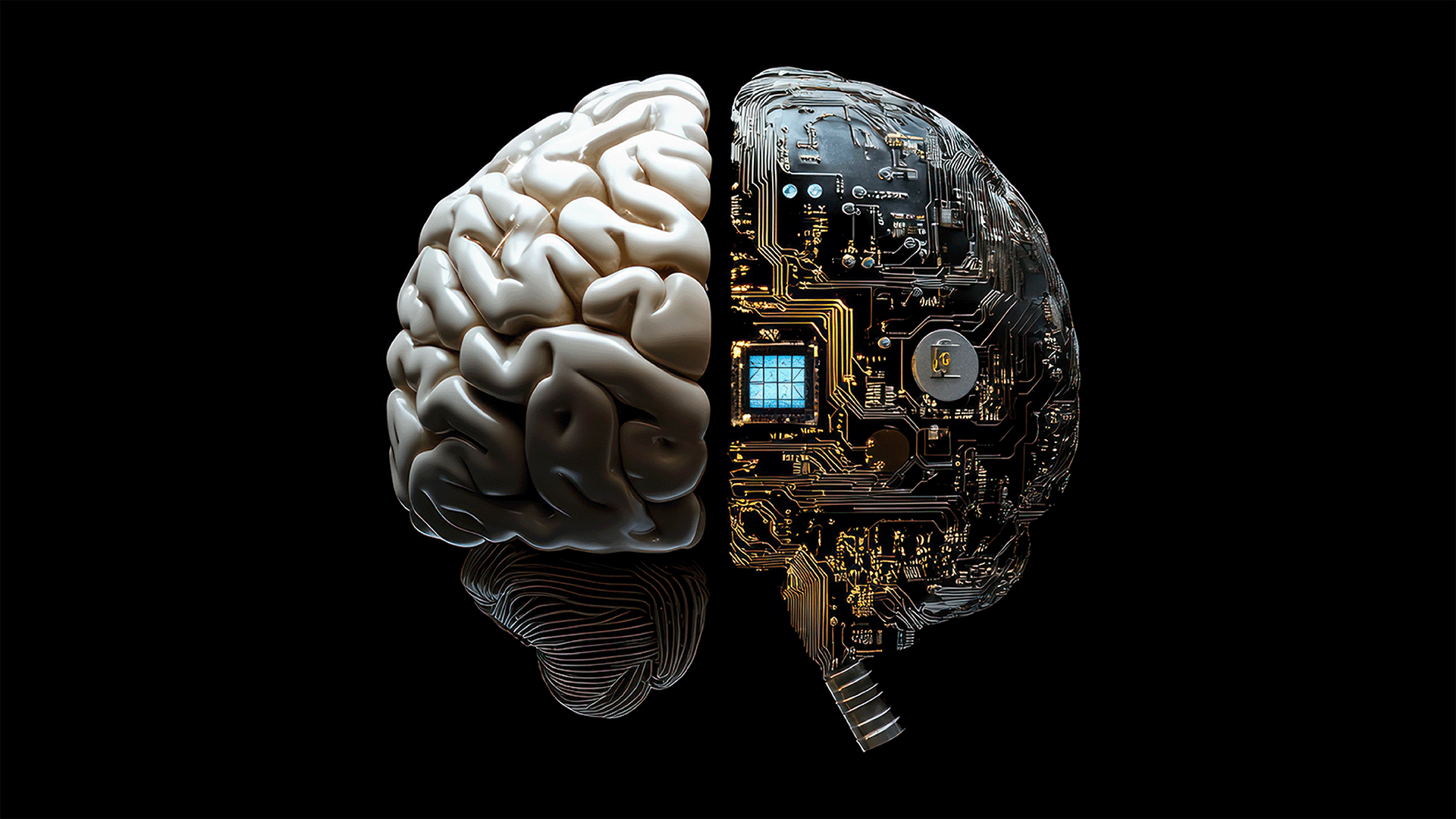How Companies Are Already Using AI (And How You Can Too)
In today's rapidly evolving business landscape, Artificial Intelligence (AI) has emerged as a transformative force, revolutionising various aspects of operations across industries. From automation and decision-making to customer service and resource allocation, AI is reshaping the way businesses operate and excel. In this blog, we'll explore real-life examples of companies harnessing the power of AI in diverse business processes. We'll provide you with valuable insights on how you can leverage AI to unlock new possibilities and drive innovation within your own organisation.
So, let's dive into the world of AI and discover the endless opportunities it presents, and the companies using AI and how.
The benefits of AI
- Faster decision-making: AI algorithms can process and analyse vast amounts of data in a fraction of the time it would take humans. This enables businesses to make data-driven decisions quickly, leading to improved efficiency and reduced downtime.
- Enhanced personalisation: AI algorithms analyse customer data to provide personalised recommendations and marketing campaigns. By delivering targeted offers and messages to customers, businesses can increase conversion rates, customer satisfaction, and ultimately their revenue.
- Improved customer service: AI-powered chatbots provide instant responses to customer inquiries, reducing wait times and improving overall customer experience. This not only saves businesses time but also helps retain customers and build brand loyalty.
- Predictive maintenance: AI systems can monitor equipment and machinery in real-time, detecting patterns and anomalies that may indicate potential failures. By predicting maintenance needs, businesses can schedule repairs or replacements in advance, minimising downtime and reducing costs associated with unexpected breakdowns.
- Optimal resource allocation: AI algorithms optimise supply chain management, inventory control, and logistics, ensuring businesses have the right resources at the right time. This prevents excess inventory, reduces storage costs, and minimises waste.
- Fraud detection: AI algorithms can analyse vast amounts of transaction data to identify patterns indicative of fraudulent activities. By detecting and preventing fraud in real time, businesses can save significant financial losses and maintain the trust of their customers.
- Accurate demand forecasting: AI models analyse historical sales data, market trends, and external factors to provide accurate demand forecasts. By predicting future demand accurately, businesses can optimise their inventory levels, reduce carrying costs, and minimise the risk of stockouts or overstock situations.
- Improved manufacturing efficiency: AI-powered robots and automation systems can perform tasks with precision and consistency, reducing errors and increasing production efficiency. This leads to higher productivity, reduced waste, and ultimately lower manufacturing costs.
- Streamlined communication and collaboration: AI-powered language translation and virtual assistant technologies facilitate effective communication and collaboration across global teams. By eliminating language barriers and enabling seamless interactions, businesses can save time and resources associated with miscommunication or delays.
How companies are using AI
Customer Service: Gone are the days of long wait times and repetitive interactions. With AI, businesses can now provide personalised and efficient customer experiences. AI-powered chatbots are handling customer inquiries, providing instant responses, and even resolving basic issues.
- Bank of America: Bank of America employs an AI-powered chatbot named Erica. Erica assists customers with various banking tasks, such as account inquiries, bill payments, and transaction history. The chatbot utilises the latest technologies, in advanced analytics and cognitive messaging and machine learning to understand customer queries and provide personalised responses.
- Sephora: Sephora, a renowned beauty retailer, has implemented an AI chatbot called Sephora Virtual Artist. This chatbot assists customers in finding the right makeup products as the app scans a customer’s face, detecting their eyes, lips and cheeks for product placement and provides beauty tips. Customers can engage with the chatbot through Sephora's website or mobile app, allowing for a seamless and interactive shopping experience.
- Lyft: The popular ride-sharing company Lyft incorporates an AI chatbot into its customer support system. Customers can contact Lyft's chatbot for assistance with ride-related queries, such as booking a ride, updating destinations, or reporting issues. AI is used to anticipate and predict what questions a customer might have, and then personalise the experience for the passenger as they work conversationally to solve the issue at hand, knowing when to escalate more complex issues to a human support agent.
- Domino's Pizza: Domino's Pizza employs an AI chatbot named Dom, available on their website and mobile app. Dom assists customers with placing orders, tracking deliveries, and answering FAQs. The chatbot simplifies the ordering process and provides real-time updates, enhancing the overall customer experience.
Personalised marketing: AI algorithms analyse customer data to create tailored marketing campaigns, delivering the right message to the right people at the right time. It's like having a psychic marketer on your team!
- Amazon: As a global e-commerce giant, Amazon heavily relies on AI for personalised marketing. The company utilises machine learning algorithms to analyse customer data and purchasing behaviour. Based on this analysis, Amazon provides personalised product recommendations, tailored offers, and targeted marketing campaigns to individual customers, enhancing their shopping experience.
- Netflix: Leverages AI to deliver personalised recommendations to its users. The recommendation engine analyses viewing history, ratings, and user preferences to suggest TV shows and movies that align with each user's interests. This personalised approach improves user engagement and helps retain subscribers.
- Spotify: Uses AI to analyse users' listening habits, and create customised playlists based on musical preferences, moods, and genres. They have recently taken personalisation to a whole new level with their AI DJ. The DJ is a personalised AI guide that knows users’ music taste and delivers a curated lineup of music alongside commentary around the tracks and artists in a realistic voice.
- Starbucks: Utilises AI in its mobile app to deliver personalised marketing offers and promotions to its customers. Through the app, Starbucks collects customer preferences and behaviours, allowing them to provide tailored rewards, recommendations, and exclusive deals based on individual preferences and past purchase history.
Fraud detection: AI systems can detect patterns and anomalies in financial transactions, helping businesses identify potential fraudulent activities and protect their bottom line. Sherlock Holmes would be proud!
- PayPal: Employs AI algorithms for fraud detection and prevention. Their system analyses transaction patterns, user behaviour, and historical data to identify potentially fraudulent activities. AI-powered models flag suspicious transactions, allowing PayPal's security team to investigate and mitigate risks effectively.
- Mastercard: Mastercard’s AI-based fraud detection system, called Decision Intelligence, assesses transaction patterns, location data, and spending behaviour to identify anomalies and potential fraud. This helps protect cardholders and merchants from fraudulent transactions.
- Amazon Web Services (AWS): AWS offers AI-powered fraud detection services through Amazon Fraud Detector. The service utilises machine learning to analyse transactional and user data, enabling businesses to identify and prevent fraudulent activities across various industries, including e-commerce, finance, and telecommunication.
- Forter: Forter is a company specialising in e-commerce fraud prevention. Their AI-driven fraud detection platform uses behavioural analytics, machine learning, and real-time data analysis to identify fraudulent transactions and prevent chargebacks. The system examines multiple data points to provide accurate risk assessments and make real-time decisions.
Supply Chain Optimisation: AI algorithms optimise inventory management, demand forecasting, and logistics, ensuring businesses have the right products in the right place at the right time. No more running out of your favourite snacks!
- Walmart: As one of the largest retailers globally, Walmart uses AI to optimise its supply chain. The company leverages AI algorithms to analyse sales data, inventory levels, and historical trends to forecast demand accurately. This enables Walmart to optimise inventory management, reduce stockouts, and ensure efficient replenishment across its vast network of stores.
- DHL: DHL, a leading logistics and transportation company, incorporates AI into its supply chain operations. They use AI algorithms to optimise route planning, shipment consolidation, and warehouse operations. By analysing various data points, including historical shipping data and real-time information, DHL can make informed decisions that minimise costs, reduce delivery time, and enhance overall supply chain efficiency.
- Procter & Gamble (P&G): P&G, a multinational consumer goods corporation, applies AI to optimise its supply chain. They utilise AI algorithms to analyse data related to demand, production, and inventory. This enables P&G to optimise production scheduling, minimise stockouts, and improve product availability while reducing excess inventory and associated costs.
- Maersk: Maersk, a global shipping company, employs AI to optimise container logistics and improve supply chain visibility. They use AI algorithms to analyse data on container movements, vessel schedules, and port operations. This enables Maersk to optimise container loading, route planning, and reduce delays, ultimately improving the overall efficiency of the supply chain.
- Apple: Apple's virtual assistant, Siri, utilises AI technologies to provide voice-based assistance on Apple devices. Siri can perform tasks such as setting reminders, answering questions, and controlling device functions, making it a widely recognised and widely used virtual assistant.
- Amazon: Amazon's virtual assistant, Alexa, is integrated into their Echo line of smart speakers and other devices. Alexa uses AI and machine learning to respond to voice commands, play music, provide weather updates, control smart home devices, and even facilitate online shopping through Amazon.
- Microsoft: Microsoft's virtual assistant, Cortana, operates across Microsoft devices and services. Powered by AI and natural language understanding, Cortana assists users with tasks, provides recommendations, and helps manage calendars, emails, and reminders.
- Salesforce: Salesforce's virtual assistant, Einstein Voice Assistant, combines AI and voice recognition to provide hands-free CRM interactions. Users can use voice commands to update records, generate reports, and retrieve customer information, enabling more efficient sales and customer service processes.
Data analysis: AI algorithms crunch vast amounts of data, uncovering valuable insights and trends that humans might miss. It's like having a superhuman data scientist working tirelessly in your data centre.
- Google: Google extensively employs AI for data analysis across its products and services. For instance, Google's search engine utilises AI algorithms to understand user queries and deliver relevant search results. Google Analytics also incorporates AI capabilities to help businesses analyse website traffic, user behaviour, and marketing effectiveness.
- Facebook: Facebook utilises AI for data analysis to personalise user experiences and improve its advertising platform. AI algorithms analyse user data, preferences, and interactions to deliver targeted content and advertisements. Additionally, Facebook employs AI for sentiment analysis, image recognition, and content moderation.
- Airbnb: Airbnb leverages AI for data analysis to improve its accommodation booking platform. AI algorithms analyse various data points, such as property listings, user preferences, and market trends, to provide personalised recommendations to guests and hosts.
- IBM: IBM offers AI-powered data analysis tools, such as IBM Watson, which provide advanced analytics capabilities to businesses. These tools enable organisations to extract insights from large datasets, perform natural language processing, and conduct predictive analytics.
Smart manufacturing: AI-powered robots and automation systems streamline production lines, improving efficiency and reducing errors. It's like having a factory staffed by robots straight out of a sci-fi movie.
- Siemens: Siemens incorporates AI into its manufacturing solutions to enable smart production processes. Their AI-driven systems analyse real-time data from sensors, machines, and production lines to optimise operations, predict maintenance needs, and improve overall equipment effectiveness (OEE).
- BMW: BMW employs AI in its manufacturing facilities for quality control and process optimization. AI-powered vision systems and machine learning algorithms inspect components, detect defects, and ensure consistent quality throughout the production process.
- Fanuc: Fanuc, a leading provider of industrial automation solutions, integrates AI into its robotics systems for smart manufacturing. AI enables robots to learn and adapt to new tasks, collaborate with human workers, and optimise production workflows for increased efficiency.
- Honeywell: Honeywell leverages AI for intelligent manufacturing in various industries, including aerospace, automotive, and chemicals. Their AI-based solutions optimise supply chain operations, streamline production processes, and improve asset management to drive cost savings and productivity gains.
Language translation: AI language models can now translate text and even interpret speech in real-time, breaking down language barriers and fostering global communication. No more awkward hand gestures during international meetings!
- Google: Google Translate is a widely recognised AI-powered language translation service. It uses advanced neural machine translation models to translate text, documents, and websites across multiple languages. Google's AI algorithms continuously learn from vast amounts of multilingual data to improve translation accuracy.
- Microsoft: Microsoft offers its AI-driven language translation service known as Microsoft Translator. It provides translation capabilities for text, speech, and even real-time conversations. Microsoft Translator leverages neural machine translation and offers various APIs for integration into applications and services.
- DeepL: DeepL is a company known for its AI-driven language translation service. It utilises deep learning models to provide high-quality translations for text and documents. DeepL Translator supports multiple languages and is widely recognised for its accurate translations.
- SDL: SDL is a language and content management company that offers AI-driven translation solutions. Their language translation technology combines neural machine translation with advanced language modelling and terminology management to deliver high-quality translations across industries.
Content creation: AI algorithms are even creating written content, from news articles to marketing copy. Who knows, maybe one day I'll be working on my stand-up comedy routine!
- Buzzfeed: The online internet media site rely heavily on Chat GPT to enhance their quizzes and personalise content for their audiences. BuzzFeed is not the first journalism platform to use AI in this way. Tech website CNET has reportedly been using an AI tool to generate articles that are later scanned by human editors for accuracy before publication.
- Microsoft: Leaked internal communications revealed that Microsoft have told their employees that using ChatGPT is fine, provided they do not share any sensitive data in case it’s used for future AI training models.
- The Insider: The online journalism site has told staff that “generative AI can make all of you better editors, reporters and producers'' so they will be using Chat GPT to experiment with content writing for journalism. They have encouraged staff to use it to develop outlines for stories, find typos, create SEO friendly headlines and serve as an explainer of complex topics.
- Forbes: Forbes leverages an AI-powered content management system called Bertie to assist its writers in generating article topic suggestions and optimising content for search engines. Bertie uses machine learning to analyse large amounts of data and provide insights and recommendations to content creators.
- Grammarly: Grammarly is an AI-driven writing assistant that helps users improve their writing by providing suggestions for grammar, style, and tone. Their newest tool, Grammarly GO, provides on-demand generative AI communication assistance directly in the apps where people write. Whether in an email thread or a long-form document, GrammarlyGO will make content creation efficient and accurate.
The rise of AI has ushered in a new era of possibilities for businesses worldwide. It’s clear that this transformative technology has the potential to revolutionise operations, enhance customer experiences, and drive innovation. The examples we've listed above highlight the immense power AI holds in solving complex challenges and uncovering new opportunities and will hopefully inspire you to do the same for your business. Embracing AI doesn't require you to be a tech giant – it's about recognising its potential and taking proactive steps to integrate it into your business strategy.
Implementing a successful AI strategy relies on analysing vast amounts of data. Try Hurree today for free, and see for yourself how you can use our dashboards to display all the data you need.
Share this
You May Also Like
These Related Stories

Why 55% of COOs Are Betting on AI and How to Get It Right

Getting the Most Out of ChatGPT: A Comprehensive Guide



